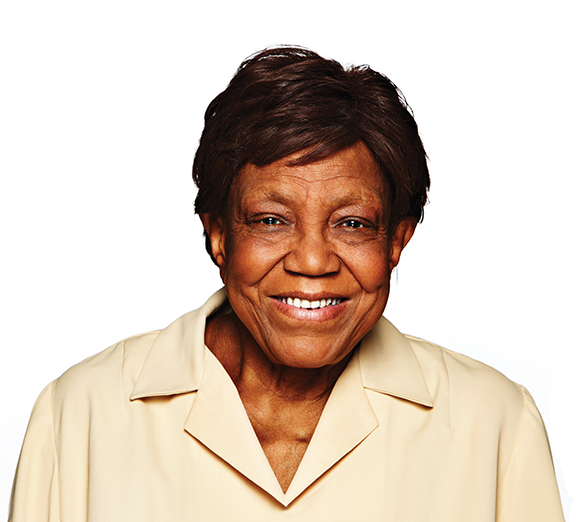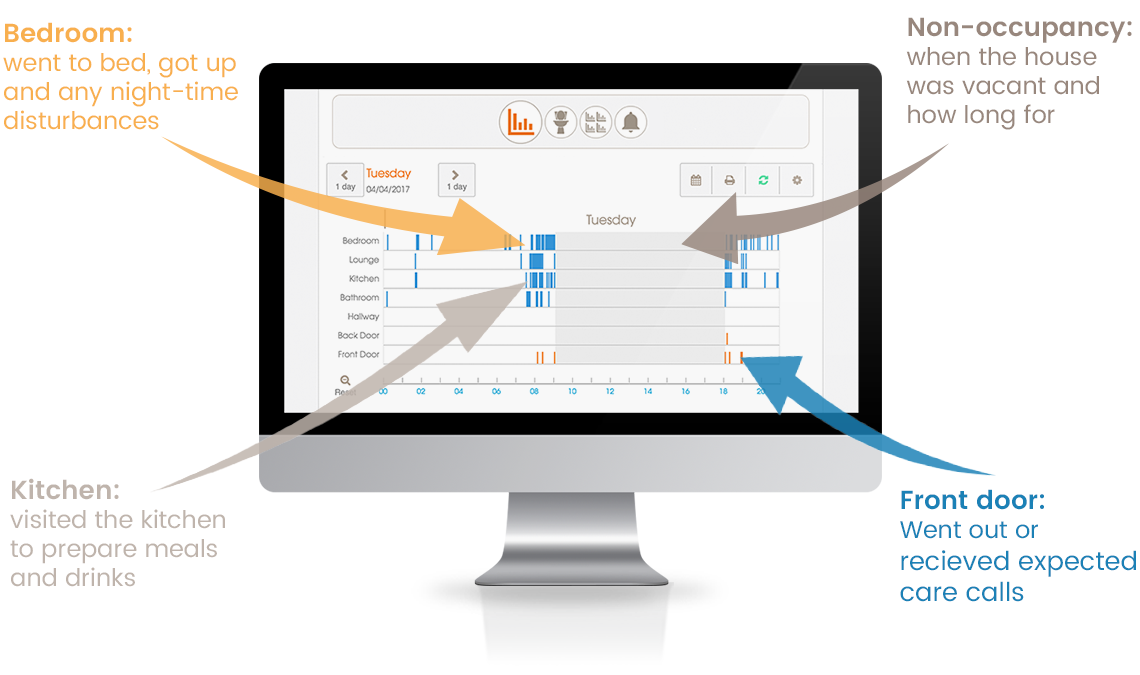
Proportionate care that encourages independence
It can be difficult to make an accurate assessment of a person with dementia if they live alone. Just Checking helps practitioners complete objective assessments, providing evidence of a person’s abilities and identifying where they may need support. That means that care and support can concentrate on maintaining independence in the familiarity of home.
This is really about providing the right social care support for a customer when they need it and that led to us being nominated for a national award for innovation in social care which I am really proud of. Peter Bungard, Chief Executive, Gloucstershire County Council
How does it work?
- The system creates a summary of activity which you view securely online
- No cameras, just discreet wireless movement and door sensors.
- Sensors attach around the property with Velcro, plug in the hub.
- No internet connection is needed within the property; the system has a roaming mobile SIM.
A clear summary of daily activity
Our chart tells you all you need to know

It’s so good to have the back-up of the professional Just Checking team. We have every confidence that their expertise will resolve any queries we may have. All it takes is a quick phone call Margaret Bennet, Assistive Technology Lead Occupational Therapist, Peterborough City Council
Outcome focused care
Through evidence based assessment
With the Care Act championing the importance of understanding an individual’s care needs, evidence based assessment tools have never been so essential.
A 24 hour, objective overview of an individual’s activity at home, in conjunction with other information gathering, enables practitioners to establish a realistic picture of the care required.

Just Checking can help:
Understand an individual’s routine and where support may be required
Provide an overview of an individual’s night-time activity and identify whether this poses a threat to their safety
Reassure practitioners and family members that an individual is able to live safely in their own home
Family and practitioners make difficult decisions about a person’s care that are proportionate and maximise well-being
